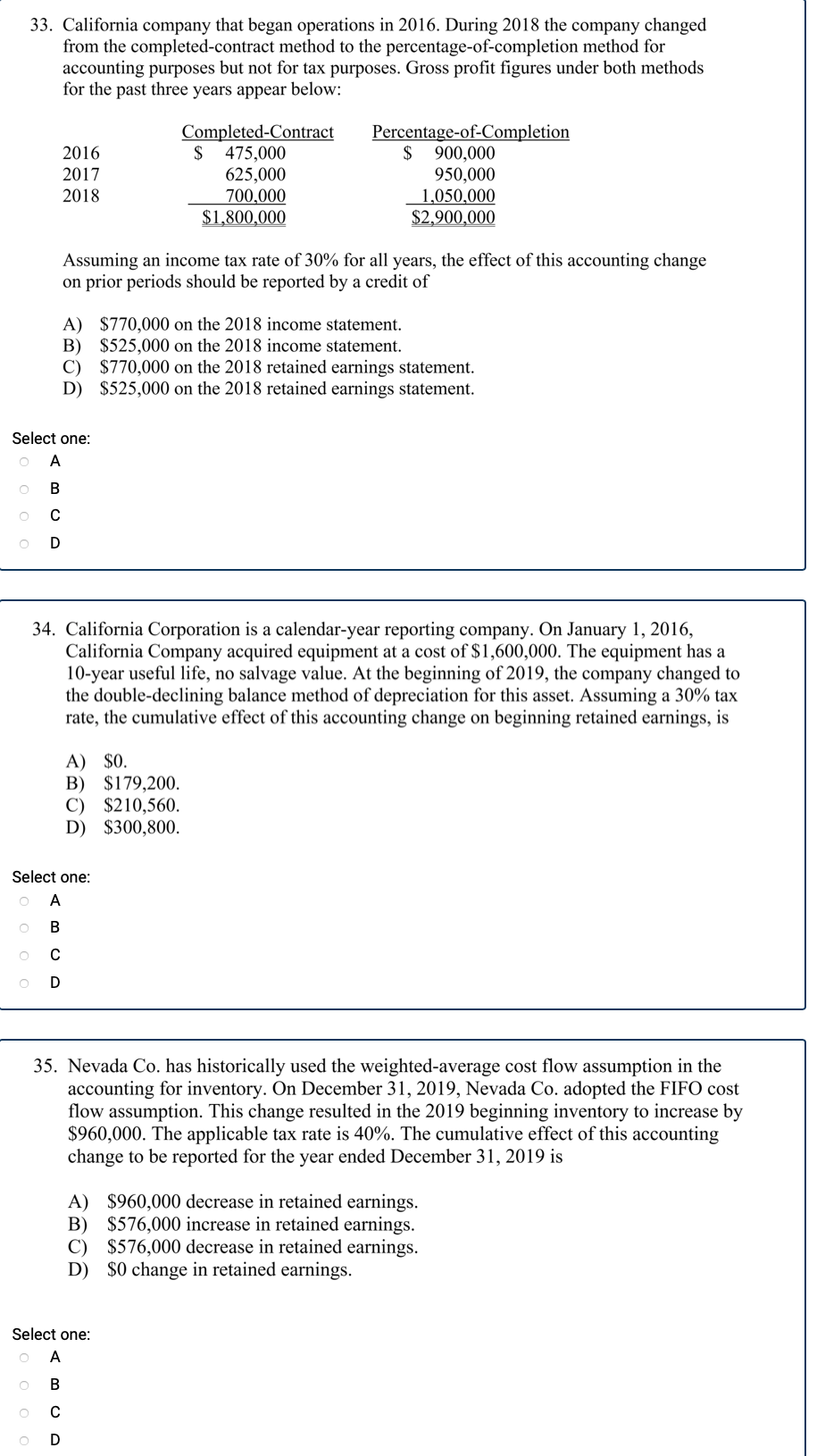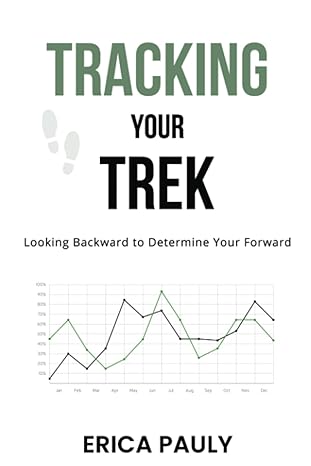
33. California company that began operations in 2016. During 2018 the company changed from the completed-contract method to the percentage-of-completion method for accounting purposes but not for tax purposes. Gross profit figures under both methods for the past three years appear below: 2016 2017 2018 Completed-Contract S 475,000 625,000 700,000 $1,800,000 Percentage-of-Completion $ 900,000 950,000 1,050,000 $2,900,000 Assuming an income tax rate of 30% for all years, the effect of this accounting change on prior periods should be reported by a credit of A) $770,000 on the 2018 income statement. B) $525,000 on the 2018 income statement. C) $770,000 on the 2018 retained earnings statement. D) $525,000 on the 2018 retained earnings statement. Select one: A B D 34. California Corporation is a calendar-year reporting company. On January 1, 2016, California Company acquired equipment at a cost of $1,600,000. The equipment has a 10-year useful life, no salvage value. At the beginning of 2019, the company changed to the double-declining balance method of depreciation for this asset. Assuming a 30% tax rate, the cumulative effect of this accounting change on beginning retained earnings, is A) $0. B) $179,200. C) $210,560. D) $300,800. Select one: A B D 35. Nevada Co. has historically used the weighted-average cost flow assumption in the accounting for inventory. On December 31, 2019, Nevada Co. adopted the FIFO cost flow assumption. This change resulted in the 2019 beginning inventory to increase by $960,000. The applicable tax rate is 40%. The cumulative effect of this accounting change to be reported for the year ended December 31, 2019 is A) $960,000 decrease in retained earnings. B) $576,000 increase in retained earnings. C) $576,000 decrease in retained earnings. D) $0 change in retained earnings. Select one: A O B D 33. California company that began operations in 2016. During 2018 the company changed from the completed-contract method to the percentage-of-completion method for accounting purposes but not for tax purposes. Gross profit figures under both methods for the past three years appear below: 2016 2017 2018 Completed-Contract S 475,000 625,000 700,000 $1,800,000 Percentage-of-Completion $ 900,000 950,000 1,050,000 $2,900,000 Assuming an income tax rate of 30% for all years, the effect of this accounting change on prior periods should be reported by a credit of A) $770,000 on the 2018 income statement. B) $525,000 on the 2018 income statement. C) $770,000 on the 2018 retained earnings statement. D) $525,000 on the 2018 retained earnings statement. Select one: A B D 34. California Corporation is a calendar-year reporting company. On January 1, 2016, California Company acquired equipment at a cost of $1,600,000. The equipment has a 10-year useful life, no salvage value. At the beginning of 2019, the company changed to the double-declining balance method of depreciation for this asset. Assuming a 30% tax rate, the cumulative effect of this accounting change on beginning retained earnings, is A) $0. B) $179,200. C) $210,560. D) $300,800. Select one: A B D 35. Nevada Co. has historically used the weighted-average cost flow assumption in the accounting for inventory. On December 31, 2019, Nevada Co. adopted the FIFO cost flow assumption. This change resulted in the 2019 beginning inventory to increase by $960,000. The applicable tax rate is 40%. The cumulative effect of this accounting change to be reported for the year ended December 31, 2019 is A) $960,000 decrease in retained earnings. B) $576,000 increase in retained earnings. C) $576,000 decrease in retained earnings. D) $0 change in retained earnings. Select one: A O B D







